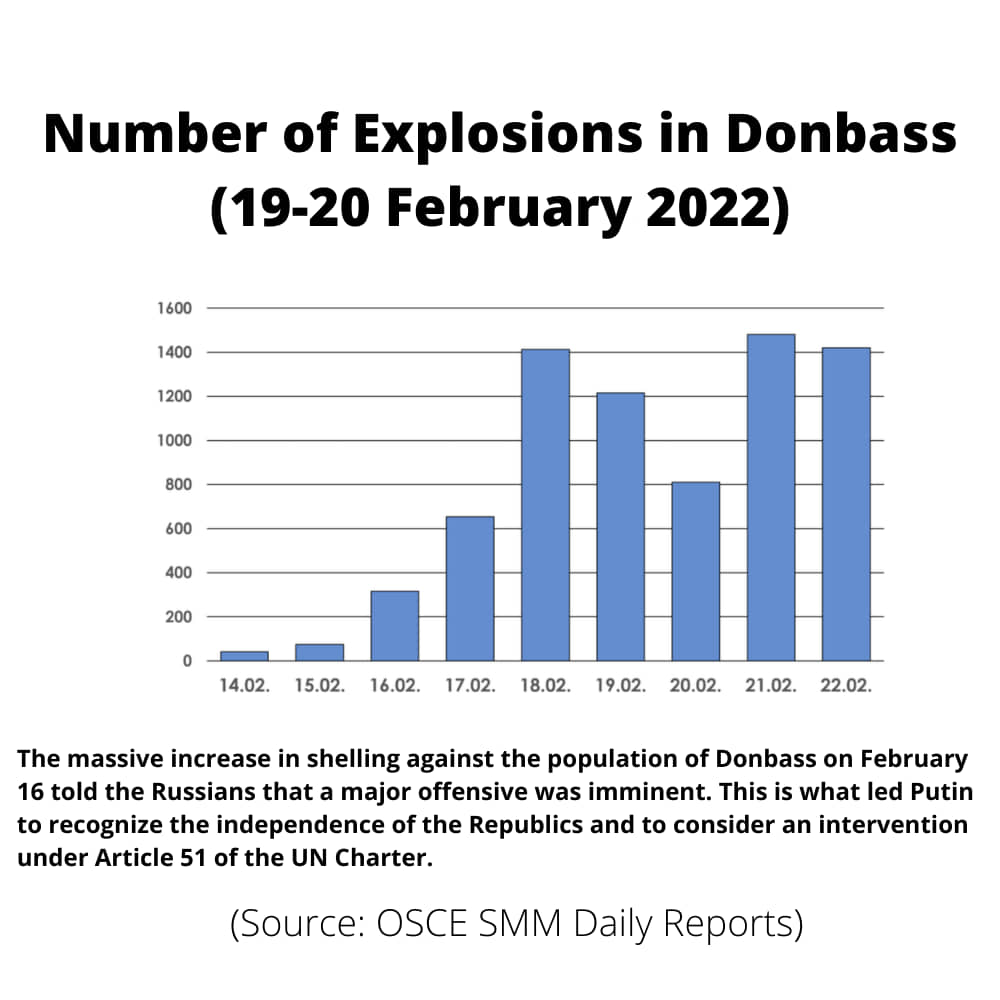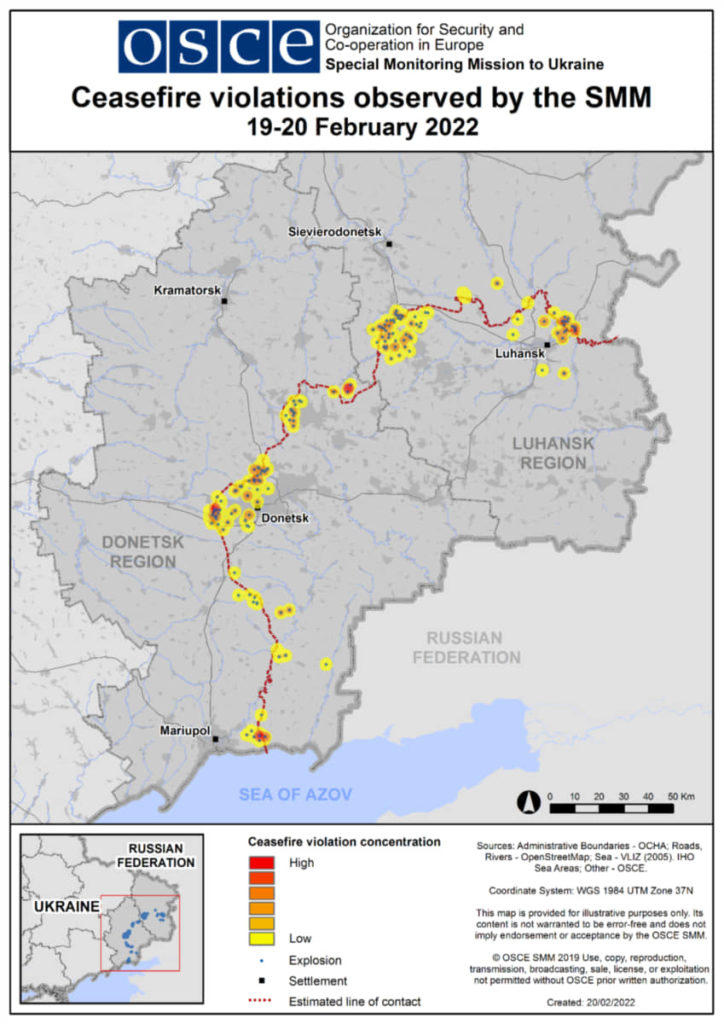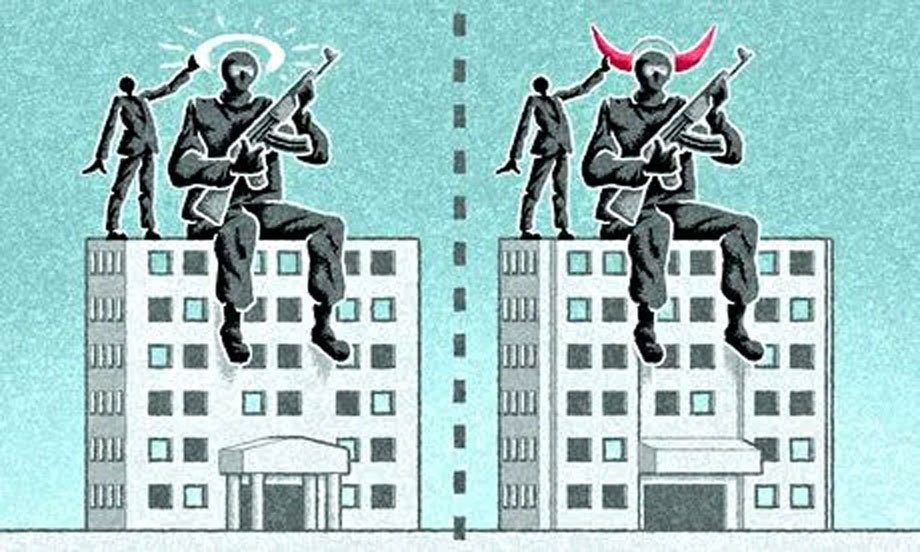Ukraine one year on and our fate lay in the hands of madmen, Putin, Zelensky, and Biden the Harbingers of the Apocalypse
NATO Secretary General Jens Stoltenberg made a doorstep announcement that confirmed what many people already understand he stated:
“The other thing I will say is that the war didn’t start in February last year. The war started in 2014. And since 2014, NATO Allies have provided support to Ukraine, with training, with equipment, so the Ukrainian Armed Forces were much stronger in 2022, than they were in 2020, and 2014. And of course, that made a huge difference when President Putin decided to attack Ukraine.”
NATO’s Stoltenberg: “The war didn’t start in February last year, the war started in 2014.”
— Labour Heartlands (@Labourheartland) February 24, 2023
Stoltenberg is right. The war started in 2014 with a US so-called regime change commonly known as a coup and we are all paying the price now… #WWWIII pic.twitter.com/xggofm5OE5
These words make a mountain of difference, Putin’s invasion of the Donbas region didn’t happen by chance. It was neither an act of imperialism or colonisation. It was a reaction to a US-Proxy war being waged since 2014, and a failure by all parties to bring about any form of negotiated peace in the Donbas, and worst while russia gathered on the borders of Ukriane the world was siliant at the six days of intense artilary raging down on Donbas and the Ukrrianian people by the Ukrianian goverment. An escalation of that civil war in the days leading up to the Russian invasion.


Jacques Baud is a former colonel of the General Staff, ex-member of the Swiss strategic intelligence, and specialist on Eastern countries who while at NATO monitored the situation in Ukraine, he states:
“The problem is not so much to know who is right in this conflict, but to question the way our leaders make their decisions.
Let’s try to examine the roots of the conflict. It starts with those who for the last eight years have been talking about “separatists” or “independentists” from Donbas. This is not true. The referendums conducted by the two self-proclaimed Republics of Donetsk and Lugansk in May 2014, were not referendums of “independence” (независимость), as some unscrupulous journalists have claimed, but referendums of “self-determination” or “autonomy” (самостоятельность).
The qualifier “pro-Russian” suggests that Russia was a party to the conflict, which was not the case, and the term “Russian speakers” would have been more honest. Moreover, these referendums were conducted against the advice of Vladimir Putin.
In fact, these Republics were not seeking to separate from Ukraine, but to have a status of autonomy, guaranteeing them the use of the Russian language as an official language. For the first legislative act of the new government resulting from the overthrow of President Yanukovych, was the abolition, on February 23, 2014, of the Kivalov-Kolesnichenko law of 2012 that made Russian an official language. A bit like if putschists decided that French and Italian would no longer be official languages in Switzerland.
This decision caused a storm in the Russian-speaking population. The result was a fierce repression against the Russian-speaking regions (Odessa, Dnepropetrovsk, Kharkov, Lugansk and Donetsk) which was carried out beginning in February 2014 and led to a militarization of the situation and some massacres (in Odessa and Marioupol, for the most notable). At the end of summer 2014, only the self-proclaimed Republics of Donetsk and Lugansk remained.”
These are the regions that over the last year have first claimed autonomy and then carried out a referendum, legal or not, where they voted to become part of the Russian Federation.
That annexation will be very difficult if at all possible to unwind. Donbas was the place where this war started it is the place where this war will end if it is ever allowed to end.
The fear is that this is another forever war with very little effort going into any meaningful talks that could lead to a ceasefire and ultimately peace.
The U.N. General Assembly approved a nonbinding resolution Thursday that calls for Russia to end hostilities in Ukraine and demands the withdrawal of its forces.
As well as calling on parties to the conflict and the international community to seek to broker peace, the resolution also calls for Russia to withdraw from Ukraine’s territory.
The document “reaffirms its commitment to the sovereignty, independence, unity and territorial integrity of Ukraine within its internationally recognized borders, extending to its territorial waters.”
The measure also “reiterates its demand that the Russian Federation immediately, completely and unconditionally withdraw all of its military forces from the territory of Ukraine within its internationally recognized borders, and calls for a cessation of hostilities.”
The resolution does not go into any details on how peace or peace negotiations might be achieved, short of saying through member states and international organizations “redoubling” their efforts.
Of course, this all sounds positive and a step towards peace however the question of Donbas is not mentioned. Russia claims they came to the rescue of the people in Donbas that have endured an eight-year civil war with thousands dead.
Exactly what would happen to these people if Russia withdraw?
In 2014 Seumas Milne wrote an article published by the Guardian about the impending conflict in Ukraine, it’s aged exceptionally well.
It’s not Russia that’s pushed Ukraine to the brink of war…
By Seumas Milne.

The attempt to lever Kiev into the western camp by ousting an elected leader made conflict certain. It could be a threat to us all.
he threat of war in Ukraine is growing. As the unelected government in Kiev declares itself unable to control the rebellion in the country’s east, John Kerry brands Russia a rogue state. The US and the European Union step up sanctions against the Kremlin, accusing it of destabilising Ukraine. The White House is reported to be set on a new cold war policy with the aim of turning Russia into a “pariah state”.
That might be more explicable if what is going on in eastern Ukraine now were not the mirror image of what took place in Kiev a couple of months ago. Then, it was armed protesters in Maidan Square seizing government buildings and demanding a change of government and constitution. US and European leaders championed the “masked militants” and denounced the elected government for its crackdown, just as they now back the unelected government’s use of force against rebels occupying police stations and town halls in cities such as Slavyansk and Donetsk.
“America is with you,” Senator John McCain told demonstrators then, standing shoulder to shoulder with the leader of the far-right Svoboda party as the US ambassador haggled with the state department over who would make up the new Ukrainian government.
When the Ukrainian president was replaced by a US-selected administration, in an entirely unconstitutional takeover, politicians such as William Hague brazenly misled parliament about the legality of what had taken place: the imposition of a pro-western government on Russia’s most neuralgic and politically divided neighbour.
Putin bit back, taking a leaf out of the US street-protest playbook – even though, as in Kiev, the protests that spread from Crimea to eastern Ukraine evidently have mass support. But what had been a glorious cry for freedom in Kiev became infiltration and insatiable aggression in Sevastopol and Luhansk.
After Crimeans voted overwhelmingly to join Russia, the bulk of the western media abandoned any hint of even-handed coverage. So Putin is now routinely compared to Hitler, while the role of the fascistic right on the streets and in the new Ukrainian regime has been airbrushed out of most reporting as Putinist propaganda.
So you don’t hear much about the Ukrainian government’s veneration of wartime Nazi collaborators and pogromists, or the arson attacks on the homes and offices of elected communist leaders, or the integration of the extreme Right Sector into the national guard, while the anti-semitism and white supremacism of the government’s ultra-nationalists is assiduously played down, and false identifications of Russian special forces are relayed as fact.
The reality is that, after two decades of eastward Nato expansion, this crisis was triggered by the west’s attempt to pull Ukraine decisively into its orbit and defence structure, via an explicitly anti-Moscow EU association agreement. Its rejection led to the Maidan protests and the installation of an anti-Russian administration – rejected by half the country – that went on to sign the EU and International Monetary Fund agreements regardless.
No Russian government could have acquiesced in such a threat from territory that was at the heart of both Russia and the Soviet Union. Putin’s absorption of Crimea and support for the rebellion in eastern Ukraine is clearly defensive, and the red line now drawn: the east of Ukraine, at least, is not going to be swallowed up by Nato or the EU.
But the dangers are also multiplying. Ukraine has shown itself to be barely a functioning state: the former government was unable to clear Maidan, and the western-backed regime is “helpless” against the protests in the Soviet-nostalgic industrial east. For all the talk about the paramilitary “green men” (who turn out to be overwhelmingly Ukrainian), the rebellion also has strong social and democratic demands: who would argue against a referendum on autonomy and elected governors?
Meanwhile, the US and its European allies impose sanctions and dictate terms to Russia and its proteges in Kiev, encouraging the military crackdown on protesters after visits from Joe Biden and the CIA director, John Brennan. But by what right is the US involved at all, incorporating under its strategic umbrella a state that has never been a member of Nato, and whose last elected government came to power on a platform of explicit neutrality? It has none, of course – which is why the Ukraine crisis is seen in such a different light across most of the world. There may be few global takers for Putin’s oligarchic conservatism and nationalism, but Russia’s counterweight to US imperial expansion is welcomed, from China to Brazil.
In fact, one outcome of the crisis is likely to be a closer alliance between China and Russia, as the US continues its anti-Chinese “pivot” to Asia. And despite growing violence, the cost in lives of Russia’s arms-length involvement in Ukraine has so far been minimal compared with any significant western intervention you care to think of for decades.
The risk of civil war is nevertheless growing, and with it the chances of outside powers being drawn into the conflict. Barack Obama has already sent token forces to eastern Europe and is under pressure, both from Republicans and Nato hawks such as Poland, to send many more. Both US and British troops are due to take part in Nato military exercises in Ukraine this summer.
The US and EU have already overplayed their hand in Ukraine. Neither Russia nor the western powers may want to intervene directly, and the Ukrainian prime minister’s conjuring up of a third world war presumably isn’t authorised by his Washington sponsors. But a century after 1914, the risk of unintended consequences should be obvious enough – as the threat of a return of big-power conflict grows. Pressure for a negotiated end to the crisis is essential.
Twitter @SeumasMilne
Support Independent Journalism Today
Our unwavering dedication is to provide you with unbiased news, diverse perspectives, and insightful opinions. We're on a mission to ensure that those in positions of power are held accountable for their actions, but we can't do it alone. Labour Heartlands is primarily funded by me, Paul Knaggs, and by the generous contributions of readers like you. Your donations keep us going and help us uphold the principles of independent journalism. Join us in our quest for truth, transparency, and accountability – donate today and be a part of our mission!
Like everyone else, we're facing challenges, and we need your help to stay online and continue providing crucial journalism. Every contribution, no matter how small, goes a long way in helping us thrive. By becoming one of our donors, you become a vital part of our mission to uncover the truth and uphold the values of democracy.
While we maintain our independence from political affiliations, we stand united against corruption, injustice, and the erosion of free speech, truth, and democracy. We believe in the power of accurate information in a democracy, and we consider facts non-negotiable.
Your support, no matter the amount, can make a significant impact. Together, we can make a difference and continue our journey toward a more informed and just society.
Thank you for supporting Labour Heartlands









